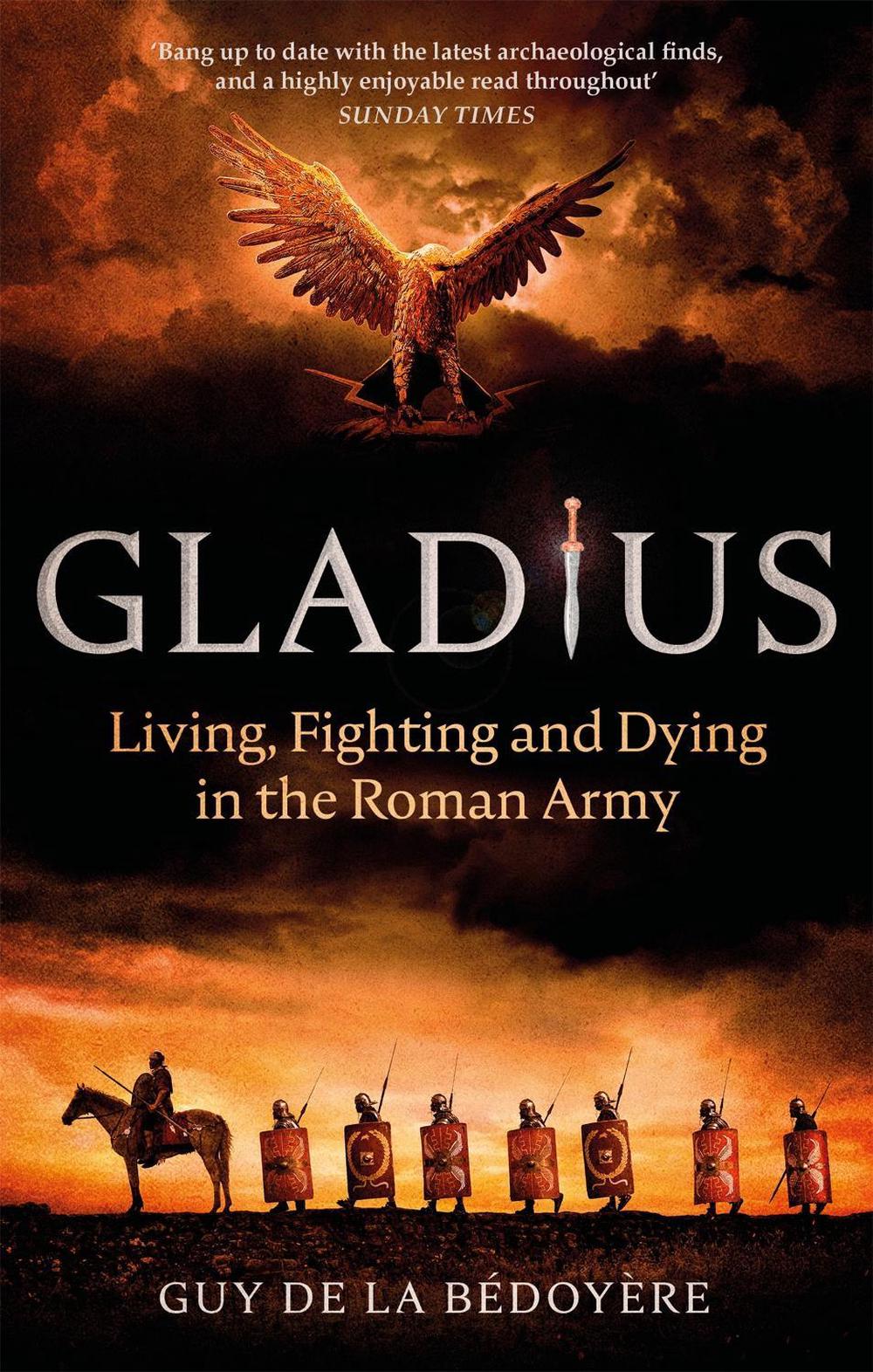
Gladius
Living, Fighting and Dying in the Roman Army
$24.06
- Paperback
528 pages
- Release Date
21 February 2022
Summary
The Roman army was the greatest fighting machine the ancient world produced. The Roman Empire depended on soldiers not just to win its wars, defend its frontiers and control the seas but also to act as the engine of the state. Roman legionaries and auxiliaries came from across the Roman world and beyond. They served as tax collectors, policemen, surveyors, civil engineers and, if they survived, in retirement as civic worthies, craftsmen and politicians. Some even rose to become emperors.
…Book Details
| ISBN-13: | 9780349143910 |
|---|---|
| ISBN-10: | 0349143919 |
| Author: | Guy de la Bédoyère |
| Publisher: | Little, Brown Book Group |
| Imprint: | Abacus |
| Format: | Paperback |
| Number of Pages: | 528 |
| Release Date: | 21 February 2022 |
| Weight: | 435g |
| Dimensions: | 196mm x 126mm x 40mm |
You Can Find This Book In
What They're Saying
Critics Review
Gladius makes for a richly researched, detailed and plausible portrait, warts and all, bang up to date with the latest archaeological finds, and a highly enjoyable read throughout
Gladius makes for a richly researched, detailed and plausible portrait, warts and all, bang up to date with the latest archaeological finds, and a highly enjoyable read throughout – Christopher Hart * Sunday Times *A remarkably precise picture of life in the Roman army - how the men were armed and billeted, what they ate, drank, wore, how they were promoted or punished, how they built their great, straight roads, what they did for sexual relief * Telegraph *
About The Author
Guy de la Bédoyère
Guy de la Bedoyere has written extensively on the ancient world over the last thirty years, most recently Gladius: Living, Fighting and Dying in the Roman Army (which was described by the Sunday Times as ‘highly enjoyable’) and Pharaohs of the Sun: How Egypt’s Despots and Dreamers drove the Rise and Fall of Tutankhamun’s Dynasty. He was part of Channel 4’s archaeology series Time Team for fifteen years and has degrees from Durham, London and University College.
Returns
This item is eligible for free returns within 30 days of delivery. See our returns policy for further details.




